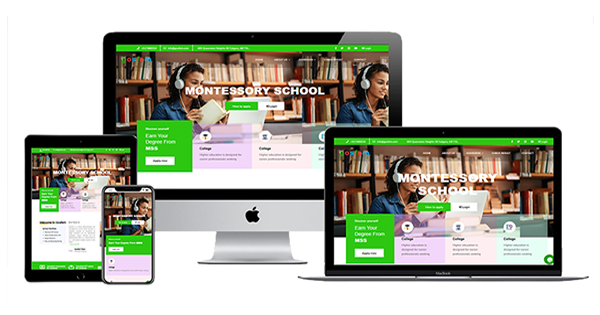
Starting a tutoring business can be both a rewarding and profitable opportunity. Not only can you help students reach their goals, but there will also always be a demand for your services. However, knowing where to start, and which steps to follow, can sometimes feel overwhelming. That’s why we’ve put together nine easy-to-follow steps to help you get your tutoring company off the ground. In this article, we outline:
Besides the sense of satisfaction and pride that you may feel when you help your students achieve their full potential, there are also some more practical benefits of starting a tutoring business. These include:
Let’s take a look at some of the benefits of starting a tutoring business in more detail.
If you decide to start your own tutoring business, you will be able to schedule classes with students whenever it suits you. The great thing about this is that it allows you to start off by tutoring part-time. This means that you can grow your business, while still having another form of income. If you then decide to pursue your tutoring business full-time, you will still get to schedule your classes to fit your lifestyle.
The main thing that you are offering your students when you start a tutoring business is your expertise. This means that there are generally no big overheads involved in starting your own tutoring business. For example, you do not need to buy stock or expensive equipment as may have been the case if you were starting another type of business. You could even cut the already low initial costs down further by running your tutoring business online or from your home. This means that you will not have to pay rent for a venue and you will not have the traveling expenses involved in commuting to your tutoring students. Your profit margins are also generally quite high when you have your own tutoring business, because there are not as many overhead costs involved.
It goes without saying that there are benefits to being your own boss. However, you need to be sure that you are ready to take on the responsibility that comes with it. Working for yourself means that you will not only be responsible for teaching your students, but you will also need to stay on top of all the admin tasks yourself.
This includes scheduling classes, advertising your business, and managing your invoicing system. All of these things take time and anything other than tutoring your students is time that you cannot bill for.
We have put together a list of nine actionable steps to help you get started on your journey to setting up your very own tutoring business.
The nine steps outlined below are:
Before you can start your tutoring business, you need to have an idea of who your ideal students are. For example, you will need to know which age group your students most likely will be in. Are you looking to offer your tutoring services to primary school, high school, or college students, or even adult learners? This depends on your particular skills and expertise.
It’s important to know which age group you are catering to as there will be very different approaches involved in marketing your services to each of them. If you want to tutor primary school students, your target audience in terms of advertising is actually parents who have children in primary school. You will also need to determine which subjects you would like to tutor, so that you know which students are likely to be in need of your services.
Before starting any successful business, it's essential to conduct market research and take a look at who your competitors are, what they offer, and what their rates are.
This is no different when it comes to starting your own tutoring business.
Knowing these details will help you to identify what makes your tutoring services different (we explore this further in the step below) and it will help you to ensure that your rates are market-related and competitive.
Simply put, your unique selling proposition (USP) is what makes your business different from others. It’s what you offer that your competitors do not.
This could be something like your particular expertise, or even your unique teaching methods.
Knowing what your USP is can be extremely valuable, as it is something that only you offer to potential students.
For example, if you are the only expert in a particular subject in the area where you live, you have a great USP. This USP should be a key point that you highlight in all your marketing efforts.
Having a business plan is key to the success of any new company. This is because it helps you consider key factors before starting your business and you can refer back to it whenever necessary. One of the main benefits of having a solid business plan is that it helps you assess the feasibility of your business model.
Creating a business plan for your tutoring business will help you identify potential challenges that you may face and outline how you might tackle them. For example, creating a business plan may help you realize that there are many tutors already offering similar services in your area. This insight may then help you reframe this challenge as an opportunity to offer online tutoring sessions and expand your services to a larger target market.
There are many different models for writing a business plan. However, most of them include the following elements:
Here is a brief outline of what each of these entails:
Most business plans begin with a description of what type of business the entrepreneur wants to build, including an outline of the products or services that the business will offer.
When creating a business plan for your tutoring business, it may be helpful to consider details such as whether you will be starting an online or in-person tutoring business.
This is because an online tutoring business will have different infrastructure requirements than an in-person tutoring business.
For example, for an in-person tutoring business, you will need to secure a venue or be able to travel to your students’ homes.
Whereas with online tutoring, you do not necessarily need a venue, but you will need a computer and a fast, reliable internet connection.
SWOT is an acronym for strengths, weaknesses, opportunities, and threats. A SWOT analysis helps you identify factors that may play a key role in the success of your tutoring business.
In a SWOT analysis, the strengths and weaknesses that you identify are internal factors that you as a business can control.
For example, a strength that you may have when starting your own tutoring business, is your specific subject matter expertise.
A weakness may be that you are only one person and can only take on a limited number of students—there are only so many hours in a day!
Opportunities and threats, on the other hand, are factors that you cannot necessarily control.
However, you can leverage these opportunities and minimize the potential threats to your business.
For example, an opportunity may be that the competitors in your area are charging very high fees for their tutoring services.
This means that by offering your tutoring lessons at a slightly lower rate, you may gain a competitive advantage.
A threat may be that there are many other tutoring businesses in your area. This could make it difficult for you to gain a foothold in a very competitive market.
Adding a SWOT analysis to your business plan is a great way to help you mitigate risks even before your tutoring business is up and running.
Another vital element in any business plan is your marketing strategies.
This is because the key to success for any new business is getting clients, and having solid marketing strategies will help you do just that.
We’ll go into more detail about how to market your tutoring business later in this article.
Having a solid financial plan will help you set realistic expectations of how much money you hope to earn with your tutoring business, and how soon.
It’s worth taking the time to carefully consider your fee structure and how your rates compare to those of your competitors.
Creating a financial plan will also help you separate your business and personal finances, and identify whether you need help funding your tutoring business.
If you do need financing, you can present your business plan to potential lenders or investors to help you secure funding.
You need to decide how you want to offer your tutoring services. You could deliver your services in any of the following ways:
Each of these has its own pros and cons, and you need to decide which option is right for your specific situation.
For example, parents may feel more comfortable making use of in-person or group tutoring services, especially if they have younger kids.
So, if you want to target primary school students, these might be good options to consider.
However, you will also need to factor in that there may be additional costs involved in offering your tutoring services in person—such as rent and transportation costs.
Although online tutoring may help you cut down on these business expenses, you may incur other costs—like paying for a fast internet connection and a good computer.
The points above are some of the practical things to consider when deciding how you will deliver your tutoring services. You may also want to factor in your teaching style and personal preferences.
For example, do you really feel comfortable teaching online? Or do you actually prefer in-person interaction with your students?
Your teaching materials and supplies will differ depending on whether you decide to offer your tutoring services online or in-person.
Some of the costs you may need to consider include:
The above list is by no means exhaustive, but it should give you an idea of the type of supplies you may need.
As mentioned earlier in this article, the start-up costs involved in starting your own tutoring service are relatively low. However, this does not mean that you won't need to invest any money into your tutoring business at all.
You will also need to carefully consider your pricing structure before you start your own tutoring business. Some factors to keep in might include:
You should always make sure that your prices are as competitive as possible, without selling yourself short.
You may not need to apply for any permits in order to start your own tutoring business. However, it’s always important to do your research and make sure that your business structure is operating legally. This is especially true if you will be tutoring children, as there may be certain regulations that you will need to adhere to.
Your marketing plan could make or break your tutoring business.
So, invest as much time and other resources as necessary to ensure that you have a solid marketing strategy to attract prospective students.
We have a great guide to help you plan all your marketing activities. It also outlines how to use different tools to advertise your tutoring business.
Our article will also help you define what marketing success looks like for your business—which will help you set realistic goals and refine your advertising strategy.
It also explores topics such as how you can use your network to gain referrals—which is a fantastic way to grow your business—and the value of creating your own website.
Now that you have a better idea of how to get started, you can begin building your own tutoring business.
Once you’re all set up, you may find that managing your own business can be a little overwhelming at times, especially when it comes to tedious administrative tasks.
Luckily, Gosfem Learning is here to help.
Our Gosfem Learning System helps you streamline your day-to-day processes and is suitable for any size teaching business—even if you’re just starting out.
With Gosfem Learning you can:
Create a Free account for free and start creating your online courses and tutor booking for you business now. No credit card is required.
share share share share share share share








Study any topic, anytime. explore thousands of courses for the lowest price ever! on Gosfem learning platform. Learning that gets you Skills for your present (and your future). Get started with us.
Explore Courses
Join thousands of instructors on Gosfem LMS teaching platform. Teachers around the world are already joining us. Do not be left out from this great platform. Come and teach what you know best and let others benefit from the wealth of knowledge you have.
Become Instructor